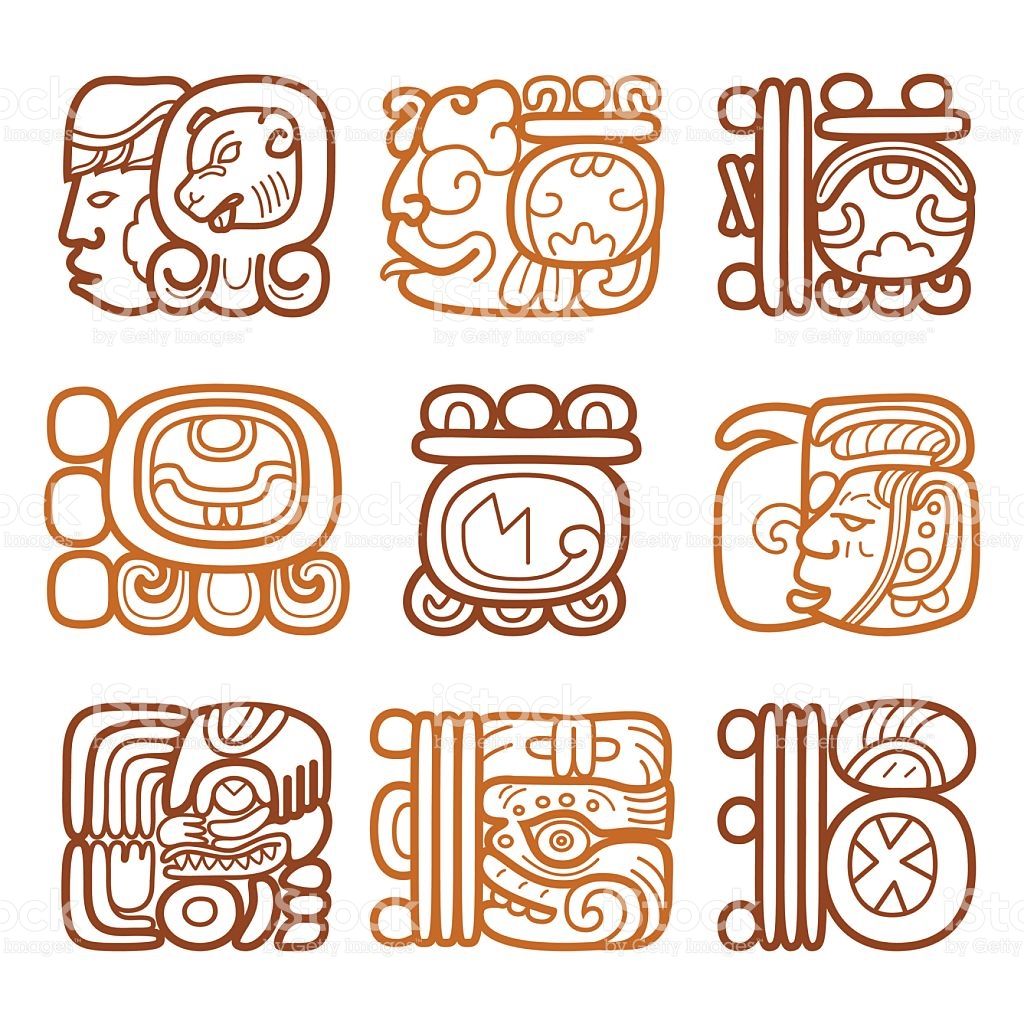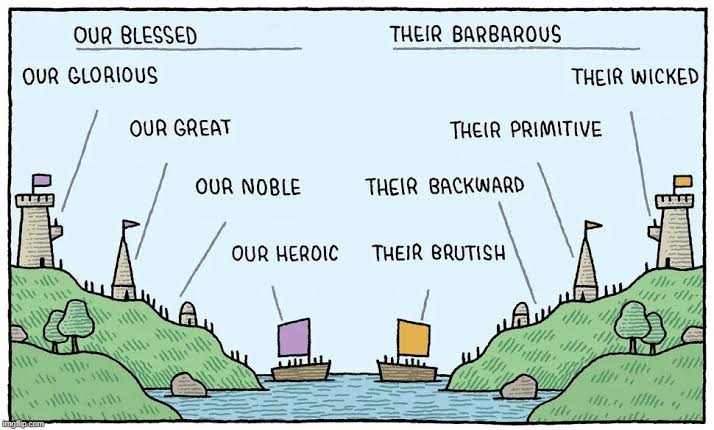Only 4 Texts Remain from the Maya Civilization After Thousands Were Destroyed
Despite the fact that we are not very far removed from their heyday, we know very little about Maya civilization.
And it’s not because the Maya weren’t into recording their history.
The Maya were prolific writers and actually evolved from using scrolls to a form of folded paper called the codex right around the same time as the Romans, though each appears to be independent of the other.
[…]
Maya glyphs and the records of the Spanish conquistadors themselves attest to thousands of these codices existing by the time the two cultures met in the 16th century.
But, due to their being destroyed by priests, conquistadors, ship raiders, and even time and mold, only about 22 codices, of which only four have Maya origin, exist today.
None of them are complete, and none have their original covers.
[…]
And you might have noticed that the oldest one only goes back to 200-300 years before the Spanish conquest.
We know that the codices went back at least 800 years prior to that, so we’re essentially looking at the tip of a fingernail and trying to guess what the hand looked like.
And that’s how the soul of a culture gets erased from history…
See also: Burning the Maya Books: The 1562 Tragedy at Mani
The last codices destroyed were those of Nojpetén, Guatemala in 1697, the last city conquered in the Americas. (Wikipedia)
A world historical crime. We live in a world where one of the great branches of culture was hacked off and burned
It’s so painful to think about tbh. Written language only ever independently developed four times: Mesopotamia, Egypt, China, and Mesoamerica. We’ve almost entirely lost that last branch. That whole writing system of glyphs, all the culture around it, intentionally destroyed. Barbarism to the highest degree.
These glyphs are pretty sick.

I wonder if Chinese/Japanese characters looked this “graphical” before they were simplified.
Oracle Bone script, the earliest written Chinese, is definitely a lot more graphical than modern Chinese, but not nearly as organic or graphic as these Mesoamerican glyphs. That’s why losing all of this is so tragic, there’s really nothing like it!
The language isn’t lost, it should be pointed out. Millions of people still speak Mayan languages and some continue to use the writing system for signs and monuments. There’s also an effort to create a simplified version (ala simplified Chinese) to make it easier for everyday use.
Yeah I’ve even read about a revival movement of writing books exclusively in the language. Their resilience is impressive in the face of losing so much of their written history.
Removed by mod
Removed by mod
When you think about the incredible explosions of creativity that happen when different cultural traditions are exposed to each other…
This is an annoying thing to say, but I think about how much creativity, color, and culture comes from South America. A non-brutalized (I know less about central America but I assume) Central America would have done some shit like compete in the realm of anime. That’s a disgusting amount of lore, stories, etc. lost to the sands of time.
recommending anyone who wants to be even more angry read Open Veins of Latin America
Incredible book, my hate is much purer for having read it.
Do you think this is ever discussed amongst CHUDs? That the whole high horse the white race sits on is a throne of lies? For people that love claiming about being all-knowing rationalists, why hide from the truth?
cattle, so no
Absolutely not, and if they were forced to acknowledge the truth about the colonization of the “new world” they would say it was conquest and thus it is cool and good because the white man deserved to do it. After all, they were stronger and superior, and might makes right (Ignore the fact that white people didn’t even know not to shit in the same rivers they drank from).
I always assume things like that happened but seeing this specific case is really pissing me off.
deleted by creator
I haven’t done a deep dive on it but from my understanding:
-
It has been greatly exaggerated
-
It is framed in a very propagandistic way and it could just as easily be said that during the Spanish Inquisition there was the widespread superstitious practice of ritually torturing and executing people as human sacrifices to their God, if you wanted to use that same sort of framing
-
Like always, this is used to divert attention away from the brutality of the settler-colonists and as a justification (“Well they were doing it too!!”/“We had to be brutal or otherwise they would have slaughtered us all!!”) This trope inevitably gets brought up with regards to native American peoples participating in slavery or scalping or acts of retribution and so on.
during the Spanish Inquisition there was the widespread superstitious practice of ritually torturing and executing people as human sacrifices to their God
I mean from the theological standpoint this is exactly what it was, killing so that the god may perform its divine function. In case of Aztec gods it might be making the Sun go up and the world working as intended* which was their job, and in case of christian god it was cleansing the heaviest sins by suffering and death thus reaching salvation, which is his job. They were just aware that putting it like that would be pretty controversial, so on one hand they spread the human sacrifice propaganda about pretty much every other religion they plausibly could and on the other distanced themselves as much as they could from christian sacrifices by “secular arm” and politics (which was greatly helped by large numbers of inquisitional trials being actually political).
*Fun fact about Aztec mythology - contrary to most other ones, where the world is in iron age after previously experiencing golden and silver ages, Aztecs had it otherwise, previous worlds were failures populated by failed experiments (the mythological giants for example had problems with remaining alive over any longer periods for no reason except being badly designed) and were destroyed by cataclysms, and the current world is the best yet with current humans being most successful creation and so it’s worth keeping.

I’m very much in favour of problematising the hypocritical narratives in the west when colonised people are discussed vs how the west is discussed because imo there’s a direct throughline from how the west discusses history and how it currently portrays “authoritarian” countries and how it discusses itself with regards to things like “officer-involved shootings”. If the series of mysterious deaths of BLM leaders happened in Belarus or Iran, the western media would have drilled it into our heads until it became a trope but since it happened in the US it’s barely a footnote, even in radical circles. If the USSR stationed armed commissars in every soviet school where they would assault children and drag them off to prison for wrongthink or for the crime of having a darker skin tone, we would never hear the end of it how it exemplified the authoritain police state nature of the Soviets yet in the US they have “resource officers” and it’s all about protecting safety and freedom and democracy.
On tiktok when there was the violent suppression of protests against the Palestinian genocide, I was telling people that the government is gonna pull a Kent State 2.0 and there was a shocking number of people who were radical left that hadn’t even heard of the Kent State Massacre until I mentioned it but I can bet you that most people in the west have at least a vague knowledge of the Moscow Theatre Hostage Crisis and the Tiananmen Square Protests.
I recently saw a video where an American liberal was confronted on the street by someone who was at least radical-ish and the topic of political prisoners got brought up. The liberal was like “Who are the American political prisoners? Where are they??” and radical responded that the US government had killed them all and I cringed because a radical should be able to list Leonard Peltier, Mumia Abu-Jamal, George Jackson (!!), Assata Shakur, Julian Assange (!), Lorenzo Kom’boa Ervin (not a fan but that’s beside the point), not to mention Guantanamo Bay, Abu Ghraib, and the global network of CIA blacksites.
It’s a product of cultural hegemony that Americans simply don’t know about the Battle of Blair Mountain or the MOVE bombings or violent suppression of the Bonus Army but they’ll be able to tell you all sorts of tall stories about the Gulags and the Stasi and whatever fairytale Yeonmi Park has concocted about the DPRK this week.
If you want to really run with it, what function does the TSA perform in airports? Not a single terrorist attack has been thwarted since their inception. People often call the TSA security theatre, which is a good start, but from an anthropological perspective they are there to conduct rituals that instill a sense of surveillance and to enforce compliance from the people who pass through airports. And I mean that completely unironically.
If you can historicise how this “a few bad apples” narrative is applied to the west, or how it gets a pass because it tries to do the right thing but sometimes it makes mistakes on the way, while the colonized and the adversary countries/peoples are vilified and demonised by exaggeration and distortion, you start to see how they’re still working to the exact same playbook but with minor adjustments in the words they use.
Fully agree.
I’m literally going to print your comment and glue it somewhere close to me
Edit: done

Oh shoot, I’m legit not prepared to get this degree of praise lol. If I knew someone was going to print that comment out I would have put more effort into writing it 😖
deleted by creator
-
I mean no, the human sacrifice stuff is very well documented in both extant Mayan art on surviving buildings, various Mayan poems that have survived into the modern era, and detailed in the Madrid codex, one of the four surviving codices mentioned in this post.
deleted by creator
Yeah I think there is something to be said on the emphasis around human sacrifice and the “evils” of the Aztecs vs the “pious” Spanish who had just finished a brutal genocide of the Taíno people in the Caribbean. Like slavery (the British in particular used “abolition” as justification for many African colonies, despite like decades earlier being the chief purveyor of the slave trade lol), human sacrifice is often used to ipso facto justify colonisation.
deleted by creator
It is guilt. When they attacks killed people it was part of a grand tradion to honor the gods and protect the earth. When the Spanish killed people it is because they wanted silver so they could make fun of the French about it. So it feels cheap in comparison
Not really. Accounts from people who actually lived the first years of the arrival of Spanish to central America, such as that of Bernal Díaz del Castillo, portray in detail the executions and sacrifices. Remember that when the Spanish got there, there was more or less a system with a central empire (the Mexica) oppressing the surrounding nation (the Tlaxcala) through very brutal means, the latter having to supply vast amounts of humans for sacrifice rituals and for cannibalistic practices. It was brutal to the point that the Tlaxcala took the arrival of the Spanish as a prophecy, and joined the rather few (1000 at its peak) Spanish soldiers in a fight against the Mexica. When they ended up conquering the capital of the Mexica (Tenochtitlan, modern Mexico City), the Tlaxcala were so bloodthirsty against the Mexica that they carried out a large massacre that the Spanish unsuccessfully (given their few numbers) tried to stop (according to Bernal Díaz del Castillo).
For reference, in Mesoamerica there were monuments (whose name is Latinised to tzompantli) showing the skulls of human sacrifices or war captives, with the biggest monument’s showcasing tens of thousands of skulls.
Edit: none of this should be used to excuse the erasure of culture and the atrocities commited by the Spanish on the different native American cultures over the following centuries
Everyday I hate Europeans more.
Related cool stuff: Laser Scans Reveal 60,000 Hidden Maya Structures in Guatemala [Jungle]

Researchers have long thought that Maya cities were largely isolated and self-sustaining. But the LiDAR scans indicate that the Maya civilization was in fact interconnected and sophisticated, not unlike the ancient civilizations of Greece and China. For example, the team discovered a network of wide, elevated causeways that linked Maya cities and may have been used to facilitate trade between different regions.
The scans also suggest that the Maya civilization was much larger than previously believed; estimates had placed the population at around 5 million during the Maya classical period, which spanned from about 250-900 A.D. But the new data suggests that the population may have been as large as 10 to 15 million people
Researchers have long thought that Maya cities were largely isolated and self-sustaining
I wonder how anyone really thought that’s possible. There’s no case that I know of, in any civilization ever, of cities being sustainable by themselves without vast rural areas providing the necessary agricultural produce. Don’t archaeologists simply run the numbers of “ok, these many people lived here, that would require X hectares of agricultural produce comparing to similar agricultural development in these past civilisations”?
Removed by mod
Removed by mod
Removed by mod
Removed by mod
We humans seem to do that pretty often. Library of Alexandria, the Sacking of Rome, Nazi Germany burning books… We’re even doing that nowadays by getting things like the Internet Archive sued and stuff
We humans
That sort of generalization lets the monsters off easy and pointlessly demonizes everyone. Throwing “we” around like that only makes excuses for the worst people around.

That sort of generalization lets the monsters off easy and pointlessly demonizes everyone.
You know, I actually think it’s a bit more myopic than that? There have been many despicable warlords in history and even they weren’t all the same.
The standard explanation for the spanish burning the mesoamerican canons is that, in so doing, they were erasing a people’s identity and memory. It would be about power and empire building. Truth be told, the spanish also have a record of ensuring loyalty and compliance of the exploited peasantry by also *co-opting * local religious traditions. So even they could have just… not burned all of those texts. Hell, there are even Church arguments not to do so because a deeper knowledge of the ‘pagan traditions’ would be in the interest of the colonizing faith.
It’s not a human thing. It’s a historical circumstances thing.
I wholeheartedly agree.
Christianity became the dominant religion in a lot of other
 regions by very different means, such as persuading kings to convert or outright co-opting local traditions, for example.
regions by very different means, such as persuading kings to convert or outright co-opting local traditions, for example.But that’s just the thing, that co-optation of local traditions I mentioned? It happened in Yucatán as well! That sort of thing happened everywhere in the portuguese and spanish empires where state power was too far for the comfort of local landlords. This being the early modern state, we are talking about almost across the whole territory. This makes a lot of sense because many of those same landlords were themselves former native elites.
The spanish themselves, in this instance, had a choice to make and they made it.
That’s a very good point of clarification: that really was a choice and “human nature” platitudes are deeply unserious indeed.
Christianity became the dominant religion in a lot of other regions by very different means, such as persuading kings to convert or outright co-opting local traditions, for example.
Poland for example. However i hate this shit and regardless of mountains of suffering it resulted in later, adopting catholicism by Duke Mieszko the First in 966 was a political jackpot that solved so many problems for him and it took over half of century till pagan reaction resulted in great uprising in 1025 and even then it was pretty easily defeated in few years (another speculative reason why all that seems to went so easy is that Mieszko and probably his half-legendary father were really merciless rulers that united the tribes by massacring local elites till no one protesting it survived, it also explains lack of tribal separatism in the early history of Poland).
deleted by creator
Well this is measurably different. The Mongols sacked Baghdad but within two years of the sack the libraries were back open. Neither Arabic nor Persian culture was intentionally suppressed, their languages and great works did not disappear, and the sacking of a city and its destruction is rather dissimilar to an intentional destruction of all cultural artifacts and memory of an entire people. Same with the Library of Alexandria; the works of the Greeks are still extant, there was no sustained effort to destroy and bury ancient knowledge, etc. It’s just a siege. What the Spanish did in Mexico is leagues worse.
well some important volumes probably perished in Bagdad and Alexandria which we only know from excerpts and references. but whether those wouldve made it to present day without those events is speculation
Oh absolutely we lost things. For instance, I really wish more of Euripides plays were extant (specifically Bellerophon, would love to read that one based on the fragments we do have), and we know that the Library of Alexandria had copies (there’s a famous story, perhaps apocryphal, that the librarian had all of Euripides’ manuscripts sent from Athens, meticulously copied and disseminated across the Hellenic world), and they probably burned. But plenty of others had copies too, and none of those have survived to the present. But it is different in that we often know what we lost. The Little Iliad, for example, or Sappho’s poetry. And we do have a mass amount of stuff we didn’t lose. In the case of the Maya, we lost everything. We have only a tiny idea of what texts were out there. The texts we do have a fragments, none complete. Hell we only decoded Mayan glyphs in the mid 20th century!
Bad people did bad things throughout history for a number of bad reasons and Christianity was only sometimes involved, even in pretense. Not sure what you’re getting at.
Bet you tankoids never considered that it was human nature to be genocidal conquerors
“Humans are biologically evil therefore all bad things humans do can be excused by biological evilness and nothing can be done to discourage, prevent, punish, or correct wrongdoing. My view of the world is very well thought out and I should be in charge of running society.”

It always pisses me off that people who think humans are bad by nature almost always conclude that we must embrace our supposed evil nature, as therefore evil must be the real good and vice versa. If not just be indifferent to evil. I never see someone say that humanity’s evil nature should be suppressed.
I never see someone say that humanity’s evil nature should be suppressed.
Burgerland’s primary propaganda flow continually emphasizes that no one should ever be told what to do ever ever ever (except when the corporate police state feels like but stay with me) and therefore even the suggestion to not be an asshole is seen as worse than being an asshole.
You can add Nalanda Mahavihara to that list.
The destruction of Nalanda is a contentious topic because it is sorta the epicentre of Buddhist anti-Islamic sentiment.
It’s held among scholars that the Muslim empires that displaced Buddhism from Pakistan and Afghanistan (Gandhara, one of the most important civilisations to Buddhism, straddled Pakistan and Afghanistan and there’s the famous Bamiyan Buddhas in Afghanistan that were partially destroyed by the Taliban) as well as the destruction of Nalanda Mahavihara and northern India coming under Muslim rule that directly influenced Buddhist eschatology and specifically the Kalachakra Tantra. (Also the Tibetan empire spanned all the way to Kabul in Afghanistan briefly before they got pushed back by the Abbasid caliphate.)
The Kalachakra Tantra has a lot in it but there’s the prophesied end times, where “barbarians” (guess who) with their “false dharma” will lay waste to all of Buddhism (what’s the Buddhist analogue of the word Christendom?) and then the king of the fabled kingdom of Shambhala will ride out with a massive army to repel the barbarians and restore peace and justice and Buddhism to the world, ushering in a global Buddhist golden age.
(The Kalachakra Tantra puts lots of the big Abrahamic prophets on blast, referring to figures like Abraham, Jesus, Moses, Muhammad, and the Islamic eschatological figure Mahdi [who also serves a similar role to the king of Shambhala to Muslims in Islamic teachings] as being demonic, but it positions Islam squarely as the primary antagonist.)
The Kalachalra Tantra became a largely Tibetan Buddhist thing over time and it is of central importance to the Jonang school of Tibetan Buddhism, ironically it was a previous Dalai Lama and his Gelug school that suppressed the Jonang school and banned their writings and practices, and much of the Jonang school survived in Western China outside the reach of the Dalai Lama and (again ironically) the Jonang school was sheltered in post-revolutionary China. The larger ironic twist here is that the current Dalai Lama has himself brought the Kalachalra Tantra to forefront of Tibetan Buddhism, riding on a wave of sinophobic red terror sentiment and the post-9/11 islamophobic war or terror sentiment in the west.
I’m trying to avoid any particular heavy-handed bias here, besides calling the “Tibetan Buddhism is all peace, love, and understanding” trope to account because it’s important to understand that the Dalai Lama pitches a lot of stuff specifically to the west in order to curry favour. It’s also important to understand that, while the Dalai Lama claims to be a simple monk, his actions are very much rooted in political manoeuvres and there are things like him fostering interfaith dialogue at events where he is teaching Kalachakra Tantra, which is pretty ironic to do when you are spreading teachings that assert that Abrahamic religions are demonic. But this was also at time when those other religious leaders were in the region to commemorate the anniversary of the execution of the (sorta) last Sikh guru at the hands of the (Muslim) Mughal Emperor, so if you know your Buddhist theology and your North Indian history then it casts this interfaith dialogue in a very different, very political light.
It’s quite a can of worms.
My best advice would be to avoid falling into simplistic narratives of the noble underdog when it comes to talking about things like the destruction of ancient libraries - it definitely sucks that these libraries were destroyed and it represents a huge loss to humanity but at the same time if you extrapolate out too far you end up seeing history through the lens of the Muslim barbarians vs the sympathetic underdog Buddhists who barbarically suppressed the sympathetic underdog Jonang school who promulgated the Kalachakra Tantra which barbarically vilifies the sympathetic underdog Muslims who barbarically destroyed the Nalanda Mahavihara, which was a major centre of learning and culture for the sympathetic underdog Buddhists… you get the idea.
(On the other hand, what the Europeans did in the Americas was one of the absolute worst atrocities that the world has ever witnessed so maybe adopting a partisan angle isn’t always the worst thing to do.)
Ancient Buddhist history is really interesting. I can’t remember where it was but I recall once reading something about how in the westernmost reaches of Buddhist influence you had Hellenic stuff intermingling with Buddhism in a similar way that Buddhism has syncretised with different traditions and beliefs in Asia which is really fun to imagine
That’s the Greco-Bactrian Kingdom! (And the related civilisations.)
It’s super interesting because everyone has at least some idea of Alexander’s conquests but most historical documentaries or highschool history classes just focus on how wonderful and powerful the Greek empire was but they don’t look at the cultural interplay that occurred or how the influences flowed into Greek culture. This is because of the background radiation of cultural supremacism and shit, of course.
This is partly why I’m fascinated by religious studies: your run of the mill history studies tends to be more focused on conflicts between different civilizations or just on one particular civilization but religion is sort of like the fingerprint of a society’s values, the interplay between different cultures, and it traces directly along routes of trade and the flow of information (given that it was usually the religious figures who were literate and it often ancient libraries were maintained by clergy - in fact, this is such a mainstay of history that we have the word “clerical” to mean everything to do administration and documentation but this traces its etymological roots directly to the words clergy, since the clergy and their clerical undertakings were so synonymous).
This is gonna be a hot take but I’m especially interested in religious jurisprudence because ultimately it says a lot about what a society values, what it rejects, the conditions that it reponded to, and how it seeks to establish “the good life” for its followers. This is absolutely a parallel to the (mostly) secular radical projects that seek to achieve their own good life for the people.
In a sense, as radicals, we seek to abolish certain aspects of society that we see as being wholly or largely detrimental and we seek to establish the necessary elements to ensure a good life amongst the masses. This is exactly what the prophet Muhammad did by enforcing a strict code of ritual cleanliness (back when people were legitimately gross with regards to hygiene which risked the outbreak of plagues - he even went so far as to serious consider mandating that people had to brush their teeth daily, and I’m not even kidding lol) and it’s exactly what the tenth Sikh Guru did by establishing very visible articles of faith so that Sikhs are basically walking billboards for Sikhism with the expectation that if you are announcing to the world that you are a Sikh then you’d better be representing Sikh values like upholding justice even at the risk of one’s own life.
If you read what Guru Gobind Singh said about why Sikhs must display visible articles of faith, it’s not all that far removed from Marx staying “The Communists disdain to conceal their views and aims. They openly declare that their ends can be attained only by the forcible overthrow of all existing social conditions. Let the ruling classes tremble at a Communistic revolution.”
Mao’s Three Rules and Eight Points are effectively laws and axioms that aren’t dissimilar from religious rules about what an army can and cannot do, to the point where the PLA choir still recites this in the same way that a mantra is recited.
I guess a superficial take here would be that I’m trying to cast radical politics as being religious or that communists are basically a cult something but really what I’m interested in is what can be learned about history, where I can use historical/cultural/religious principles and values to agitate and organise for revolution, and to learn what works and what doesn’t when it comes to enforcing a set of standards for society to achieve “the good life”.
The PLA distinguished itself from warlords because that was the era they emerged from and warlords were undeniably a plague on Chinese society that brought untold amounts of suffering and hardship down on the masses. There’s a lot to be learned from that and even today in China, the police serve the people in a way that is markedly different from the police in America which emerged from slave patrols who were reacting to slaves who attempted to abscond in order to be free.
CW: moderate discussions of animal abuse and slaughter ahead
Judaism made religious prohibitions against taking meat from animals without slaughtering them first. This is perhaps the oldest historical record of animals rights being established as it prohibited Jews from causing immense suffering to an animal by butchering it while it was still alive.
There’s a reason why this law is etched into Judaism and later Islam. The societies that existed before and around these religions either permitted this practice or it was frowned upon but society was still fairly permissive of the practice, and Abrahamic religions reacted to these circumstances.
In a similar vein, are we as radicals not seeking to respond to the lessons and the failures of previous revolutions?
If I were asked to make principles or axioms on this basis, I would literally say things like:
“Do not accept IMF loans except as an absolute necessity” (Yugoslavia)
“Do not allow for uneven economic prosperity that leaves ethnic groups or regions behind” (China, Yugoslavia)
“Enforce strict ideological discipline within the party” (USSR)
“Uphold the rights of people to express their sexual orientation and gender identity without persecution or harassment, do not favour one gender or sexuality over others” (Cuba)
“Maintain strict control over all armed forces” (Chile) etc. etc.Is that really any different to the Three Rules and Eight Points that Mao established? Is that really so different from the Ten Commandments or Hammurabi’s Code?
The contents are different, sure, but ultimately I see far more parallels than I do points of difference.
I found a YouTube link in your comment. Here are links to the same video on alternative frontends that protect your privacy:
deleted by creator
The burning of the Library of Alexandria was accidental and though the sacking of Rome caused cultural destruction (and to a much greater extent, human misery), I don’t think there was even the faintest attempt of the systematic obliteration of a culture, they were just looting shit and incidentally breaking things (and kidnapping women, which is the human misery part). The Nazis are the only historical comparison that actually holds up, because their bibliocausts were very similar in character to the cultural genocide in the OP.
I’m mad about the Internet Archive stuff too, but I need to say that it’s again a completely inappropriate comparison. The archive is being attacked over opposition to freedom of information and, even if it gets effectively taken down and everything on it wiped, the real cultural destruction involved will be purely incidental to the real capitalist purpose of protecting intellectual property sovereignty. They aren’t aiming to erase any information, they are just completely apathetic to such a thing happening.
No connection between these ideologies and systems, nope! It’s all just huMaN NatURe
I’m not sure why everyone assumes that is what I’m saying. I would say it is a moral failing on the part of the people doing the burning, both those who are active participants and those who simply had the power to do something about it and chose not to do so.
never have the actions of those functioning within systems been moral, because we’ve never had moral systems built by the common people for the benefit of all
So, yes you ARE saying that when you say “we humans”
the library of alexandria didn’t go down like that lol.
We humans
it’s basically all whites and Arabs except for that one time in Cambodia
I would recommend this video on the Library of Alexandria https://youtu.be/M4WU8gqrgsQ
I found a YouTube link in your comment. Here are links to the same video on alternative frontends that protect your privacy:

That assumes it was on purpose. I tend to think it was by negligence. After all, many monks did learn the languages of the tribes.
And another question could be, when did all that destruction happen? Before or after 1810?
They did it on purpose. The Spaniards believed that the existence of indigenous texts would promote idolatry and inhibit the adoption of Catholicism.
We found a large number of books in these characters and, as they contained nothing in which were not to be seen as superstition and lies of the devil, we burned them all, which they regretted to an amazing degree, and which caused them much affliction. —The Spanish Archdiocese in 1562 (Wikipedia)
The destruction was done before 1810.
The last codices destroyed were those of Nojpetén, Guatemala in 1697, the last city conquered in the Americas. (Wikipedia)
Why 1810?
Circa 1810: independence.
So religious stupidity in the XVII century.
Wrong. The Spaniards, and particularly priests, methodically gathered and destroyed the “heathens’” works and destroyed them. They engaged in cultural genocide long before that was a term.
The exceptions are what us actually noteworthy. When there were priests that opposed these practices and tried to preserve culture and knowledge from wholesale destruction and substitution. They were a fringe minority and usually lacked power and were punished for their actions.
We can only imagine were we would be if all thoses libraries weren’t burned down.
deleted by creator
A world historical crime. We live in a world where one of the great branches of culture was hacked off and burned


















